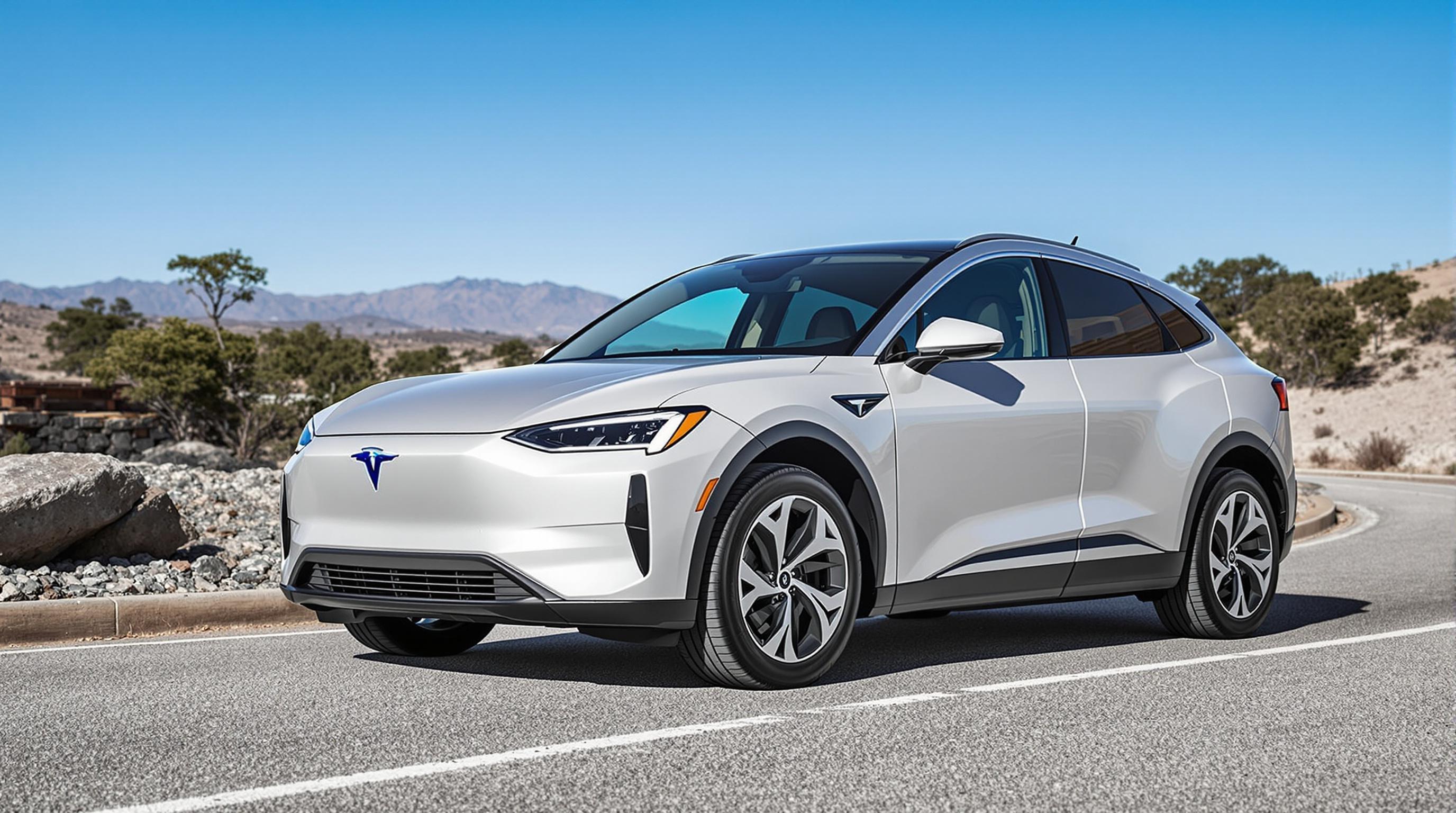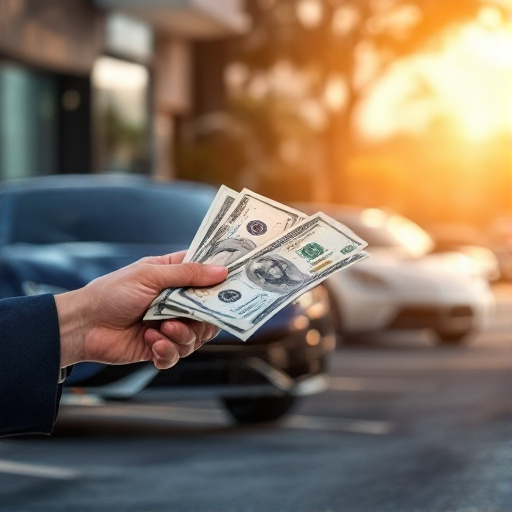Related Articles
- Unveiling the Unthinkable: How Your Social Media Posts Could Impact Your Car Insurance Premiums
- "From Showroom to Social Media: How Dealerships are Becoming Digital Storytellers in 2023"
- "From Showroom to Stream: The Rise of Virtual Reality Test Drives at Dealerships"
- Revving Up Sales: How Virtual Reality is Transforming the Dealership Experience for Shoppers and Sellers Alike
- Selling Experiences: How Dealerships Can Transform into Immersive Automotive Entertainment Hubs
- The Surprising Impact of Your Credit Card Habits on Car Financing: What You Didn't Know!
"Beyond MSRP: Decoding the Psychological Tactics Car Salesmen Use to Entice Buyers"
"Beyond MSRP: Decoding the Psychological Tactics Car Salesmen Use to Entice Buyers"
Car salesmen are masters of persuasion, utilizing psychological tactics that go far beyond the Manufacturer's Suggested Retail Price (MSRP) to entice potential buyers. From invoking emotions to using specific framing techniques, these strategies shape consumer behavior and transform the car-buying experience into something uniquely compelling.
Setting the Stage: The Atmosphere of the Dealership
Walking into a car dealership can often feel like stepping into a high-stakes game. The lights are bright, the music is upbeat, and the scent of new tires and upholstery hangs in the air. But it's not just about creating an inviting atmosphere; dealerships aim to evoke excitement and urgency in buyers. A study from the Journal of Consumer Research suggests that the environment significantly influences consumer choice, and dealerships understand this all too well.
The Art of Smile and Greet
Remember the first time you visited a car dealership? Perhaps a friendly salesman approached you with a genuine smile, ready to offer help. This isn’t just a common courtesy; it's a psychological tactic known as “priming.” When a salesperson warmly greets you, they are effectively priming you to associate positive feelings with them and the brand they represent. Interestingly, a study published in the *Journal of Applied Psychology* found that warm and friendly interactions lead to higher customer satisfaction and increased likelihood of purchase.
Social Proof: The Power of Testimonials
One of the oldest tricks in the book is using testimonials and social proof to enhance credibility. Think of the shiny plaques and thousands of glowing reviews often showcased in car dealerships. By presenting evidence that others have had positive experiences, salespeople can leverage the psychological principle of social proof, making potential buyers feel more at ease. A 2022 report from HubSpot stated that 77% of consumers read reviews before purchasing, highlighting how powerful this tactic can be.
Case Study: The Influence of Reviews on Car Buying
Consider “AutoMax,” a fictional car dealership that saw a significant increase in sales after investing time in their online review strategy. By encouraging satisfied customers to leave positive reviews on platforms like Google and Yelp, they were able to boost trust among prospective buyers. Within six months, they noted a 30% increase in foot traffic attributed to their strong online presence. This demonstrates how effective testimonials can be in altering consumer behavior.
The Illusion of Scarcity
Ever noticed when a salesman tells you that there’s only one more of that popular model left? This tactic hinges on the concept of scarcity, which can evoke a sense of urgency that compels buyers to make decisions swiftly. Cialdini’s Theory of Influence emphasizes that humans are inherently motivated by the fear of missing out (FOMO). A study conducted at Stanford University found that when consumers perceive limited availability, their desire for the product increases dramatically.
Example: “Last One, Act Fast!”
I can’t confirm if it's an urban legend, but I've heard stories of salespeople strategically placing a single vehicle in a high-visibility spot while claiming it's “the last one.” Whether true or a clever ploy, this strategy can lead buyers to make hasty decisions to purchase before someone else does. The combination of urgency and scarcity is a powerful cocktail for closing deals.
Anchoring Bias: The Price Game
Welcome to the game of numbers! Salespeople often start negotiations with the MSRP or an inflated price, anchoring the customer’s perception of value. By introducing a high initial price, the dealer sets a mental anchor that makes any subsequent discount feel more appealing, even if it’s still above market value. This technique is backed by research from the Behavioral Economics field, illustrating how initial figures can lead consumers to make biased and often irrational decisions.
Why It's So Effective
To prove it, let’s illustrate: Imagine walking into a dealership and seeing a vehicle marked at $40,000. But after some back-and-forth, the salesman quickly offers a “discount,” bringing down the price to $35,000. While that feels like a deal, it’s crucial to remember that it was never worth $40,000 in the first place! This tactic is one of the oldest tricks in the negotiation playbook.
The Importance of Research
As a savvy and informed buyer, understanding these tactics can help you resist the emotional sway of the sales process. Research the fair market price for the vehicles you’re interested in to establish a reference point. Websites like Kelley Blue Book and Edmunds can provide invaluable insight into what you should realistically expect to pay.
Emotional Appeals: Engaging the Heart
Ultimately, people buy cars for different reasons. While some may be looking for status, others seek reliability or family-friendliness. Salespeople often identify the emotional triggers that motivate these purchases. In a study published by the *Journal of Consumer Research*, researchers found that emotional appeals were a significant factor in purchasing decisions. For instance, a family-oriented buyer might be more drawn to spaciousness and safety features, while someone seeking a sporty car might respond better to performance and sleek design.
Storytelling: Making Connections
A brilliant salesman once told me a story about how the car I was considering was “the same model the president drove.” While I knew this was a cliché tactic, it piqued my interest. Storytelling can create an emotional narrative that allows buyers to visualize themselves within the context, often making the car feel more desirable.
Humor in Sales
And let’s not forget the humor! There’s something relatable about a humorous pitch. A skilled salesman might crack a lighthearted joke about the weather while casually steering the conversation toward closing a deal. Researchers at the University of Pennsylvania found that humor can strengthen interpersonal connections and increase trust! So, if you find yourself chuckling while negotiating, it may just be the skill of the salesperson shining through.
The Turnaround: Pushing for Final Offers
As the negotiation reaches its zenith, salespeople often employ the “last chance” technique, presenting a final offer that creates an illusion of exclusivity. This final push often involves a time-sensitive concession, asking you to make a choice before the deal is gone forever. Research by the Harvard Business School suggests that such strategies can increase the likelihood of a sale because they tap into the fear of making an undesirable choice.
Don’t Fall for the Trap
It’s essential, as a buyer, to recognize when these tactics are deployed. The urgency to buy can lead to regret and buyer's remorse. Take a step back, evaluate the deal, and remember: the car isn’t going anywhere overnight! Even if you’ve fallen for the trap of urgency, walk away and give yourself time to think it through. Being the mindful buyer can save you from giving your hard-earned cash to someone just pulling the strings.
The Final Thought: Empowering Yourself
In conclusion, understanding the psychological tactics that car salesmen use better prepares you for the process. Equipped with knowledge about how emotions, sales environments, and negotiation strategies influence decisions shows how consumers can stand their ground and make informed choices. The car-buying experience can be exciting and stressful, but by being aware of these techniques, you can assert control over the situation and emerge victorious. If you’re considering your first car, or perhaps an upgrade, just remember: sellers are not the enemy, but as in all effective marketing, knowledge is your greatest ally. So go forth, educated shopper! Make that emotional connection with the right vehicle on your terms. Happy car hunting!





